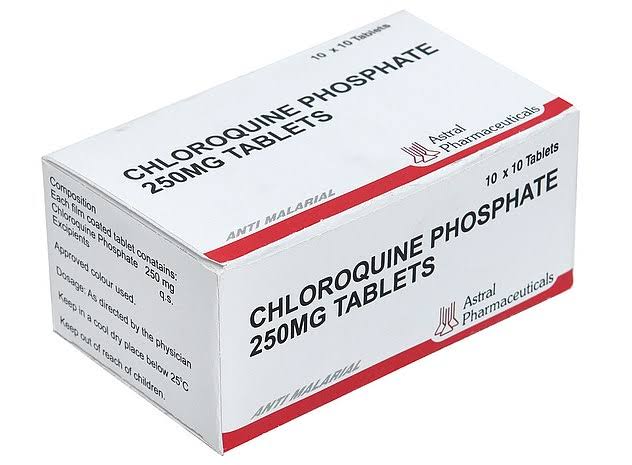Chloroquine as a cure for coronavirus: All you need to know
Since the outbreak of the coronavirus pandemic worldwide, attempts are being made by affected countries to contain and manage the further spread of the virus.
A few scientists, laboratory technicians, and other medical experts globally have been working assiduously to develop a possible vaccine or cure against the infectious coronavirus disease.
Even though there are no approved drugs or vaccines for the coronavirus disease, researchers are testing a few existing drugs to see if they may work against the virus.

Chloroquine is one of the drugs tested in patients infected with the COVID-19 virus. It is a very familiar anti-malaria pill worldwide, especially in areas with high cases of malaria fever.
When ingested, the pill is distributed to all tissues in the body and can thus treat any infected organs, whether the liver or the lungs. It does not act directly on the virus, but rather on ?sick? cells by reducing their infectious capacity.
Reports also have it that Chloroquine, as common as it is, could prevent some coronavirus patients from worsening to the point of needing hospitalization in the first place.
Aside from China where the effectiveness of chloroquine against COVID-19 patients was tested, a certain professor at the Marseille University Hospital Centre in southern France, Professor Didier Raoult, also affirmed that chloroquine has the potential to be a miracle cure against coronavirus. On 16 March 2020, the professor administered a dose of 600 mg of hydroxychloroquine per day, in combination with azithromycin (a macrolide antibiotic) to patients admitted to his department.
Six days later, according to his results, only a quarter of patients still carried the virus, compared to 90% for patients who did not receive the same treatment. On 23 March, French Minister of Health Olivier V?ran approved the use of chloroquine in hospitals to treat patients with the most severe forms of coronavirus.
While there are few reports suggesting that chloroquine and its derivatives might be the most effective pill against the viral infection at the moment, it should be noted that it can as well have serious side effects, such as causing damage to an individual's eyes. It can also cause headaches, dizziness, and stomach problems ranging from discomfort to vomiting and diarrhea.
Several countries including China, France, South Korea, and Belgium, have added it to treatment guidelines for the COVID-19 virus as anecdotal reports have come in suggesting it may work.
Despite the inconclusive clinical proof, the Food and Drug Administration (FDA) of the United States have also issued emergency authorization for experimental coronavirus treatments using chloroquine and hydroxychloroquine.
However, there is a serious warning by the Centre for Disease Control (CDC) against taking nonpharmaceutical chloroquine phosphate without a prescription and the supervision of a healthcare provider due to its potential of causing serious health complications, including death.
Chloroquine and its derivatives may be life-saver against the novel coronavirus, but it will require more data to show that it is truly safe and effective for treating coronavirus patients.
